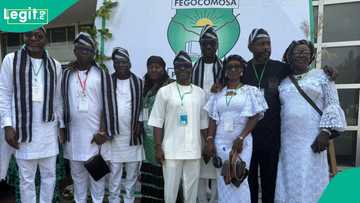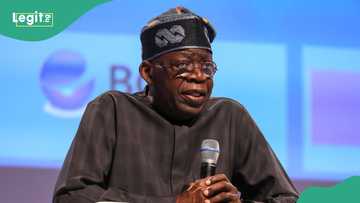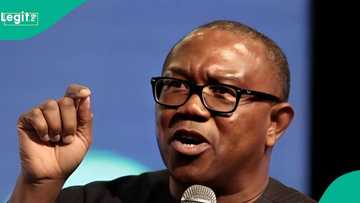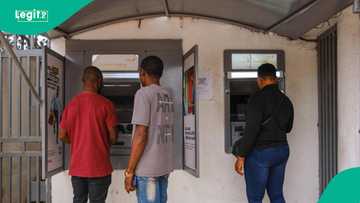INEC and the Leadership Test Nigeria Must Not Fail in 2027
Editor's note: In this piece, policy analyst Lekan Olayiwola turns attention to how Nigeria’s fractured electoral leadership fuels public frustration. He frames 2027 as a test that the nation cannot afford to approach with business as usual.
In every democracy, the ballot is sacred, but never neutral. Its credibility depends entirely on the integrity of those who manage it. Around the world, electoral commissions have proven to be either the guardians of democratic will or the architects of its betrayal.
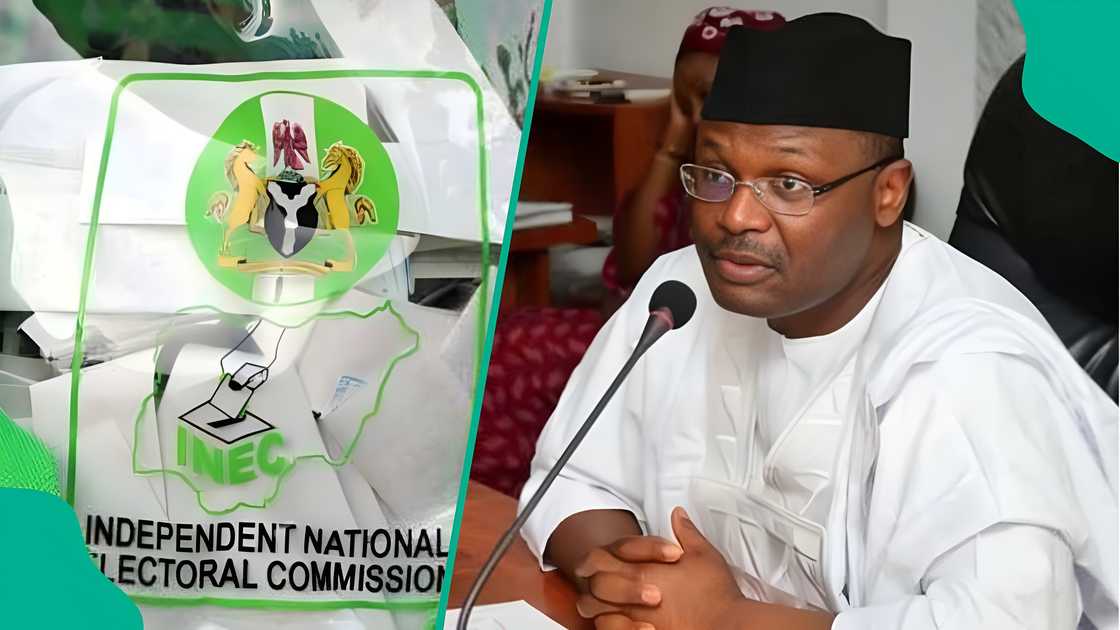
Source: Twitter
The fall of incumbents in countries like Colombia, Chile, and Guatemala was not just a reflection of voter sentiment; it was made possible by electoral bodies that stood firmly with the mandate of the people. In contrast, Belarus and Venezuela have shown how compromised commissions can entrench power, distort outcomes, and render elections performative.
Even in mature democracies, the referee matters. The United States, once considered a gold standard, now grapples with declining trust in its electoral infrastructure. The UK has faced criticism over voter ID laws and disenfranchisement. These examples reveal that elections are won or lost not just by candidates, but by the credibility of those who oversee them.
The cost of an asymmetric electoral system
Nigeria’s electoral calendar has become increasingly fragmented. Off-cycle elections, once anomalies, now dominate the political landscape. While legally valid, they have created a perpetual campaign season that exhausts voters, strains institutions, and destabilises democratic rhythm.
This fracture carries a profound political and emotional cost. It is the young graduate in Abuja who queued for seven hours in 2023, only to see polling officials arrive without materials. It is the market woman in Benin City who carried her voter card with pride, only to discover that the results she witnessed at her polling unit bore no resemblance to what appeared on INEC’s portal. It is the first-time voter in Calabar who may never vote again.
The fatigue signals a growing disillusionment with the electoral process itself. And when elections begin to feel like burdens rather than affirmations of belonging, the legitimacy of democracy begins to fray, revealing an ethical void in how elections are managed.
It reflects a leadership culture that treats electoral administration as a technical exercise, rather than a democratic covenant. A culture that prioritises procedure over participation and logistics over legitimacy.
The question of who leads INEC and how they are chosen is central. The rhythm of democracy is set not just by the calendar, but by the character of those who oversee it. And unless Nigeria rethinks how it selects and evaluates the leadership of its electoral commission, the 2027 elections risk being compromised before they begin—not by fraud alone, but by fatigue, distrust, and the slow erosion of civic faith.
Institutional complicity and the erosion of public trust
Besides the resilience of its voters, Nigeria’s electoral history is marked by the recurring controversies surrounding INEC.
From the infamous 2007 general elections, widely condemned as one of the most fraudulent in Nigeria’s history, to the more recent 2023 presidential and 2024 Edo governorship elections, INEC has repeatedly found itself at the centre of allegations of bias, manipulation, and institutional failure.
This erosion of trust is measurable. Afrobarometer surveys show that only about 23% of Nigerians express trust in INEC—a crisis of confidence that threatens democratic legitimacy.
For communities already pushed to the margins, including internally displaced people, persons with disabilities, and women who face cultural and logistical barriers to voting, the consequences are devastating. When institutions falter, the excluded are silenced first.
The IREV portal, once hailed as a breakthrough in electoral transparency, has been repeatedly discredited. In Edo, results uploaded to IREV did not match those announced by INEC, casting doubt on the platform’s reliability and the commission’s commitment to transparency. Technology without ethical stewardship only digitises distrust.
The lessons we cannot ignore
These controversies teach us that electoral integrity cannot be assumed, but engineered. INEC’s history reveals that without ethical leadership, institutional independence is a myth. The commission’s complicity in electoral malpractice shows that technical reforms alone are insufficient. What Nigeria needs is a leadership culture rooted in accountability, empathy, and historical reckoning.

Source: Twitter
Succession within INEC must be guided by more than political calculation. It must be anchored in ethical screening that evaluates not just competence, but character. The individuals who oversee our elections must be shaped by civic purpose, not partisan loyalty. They must understand that their role is not to manage outcomes, but to protect the process.
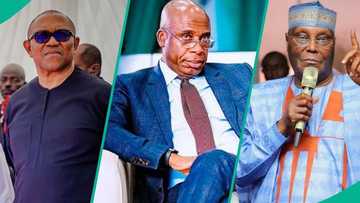
Read also
2027 election: ADC mentions what'll happen to Atiku, Obi, Amaechi when party finally cedes presidential ticket
A new ethic of succession for INEC’s leadership
Leadership transitions within INEC occasioned by retirements, reappointments, or reshuffles are not mere administrative footnotes. They are constitutional inflection points. Yet too often, these successions unfold in silence, negotiated behind closed doors, shielded from public scrutiny. This opacity undermines trust.
Nigeria must move beyond substitution toward institutional transformation, anchoring succession as a civic covenant in integrity, transparency, and accountability. While INEC operates within a hierarchical civil service culture, the process can be incrementally democratised.
Nominees may first be vetted internally for technical competence and ethical track record, then reviewed by a multi-stakeholder panel that includes civil society, legal experts, and electoral scholars.
Public-facing elements such as panels’ findings, written public submissions, or candidate profiles introduce transparency without forcing bureaucrats to abandon internal protocols. Over time, these hybrid mechanisms build both institutional habit and public confidence.
Candidates must be assessed not only for technical skill but ethical formation. Their record should demonstrate defence of institutions, reckoning with electoral history, and leadership that listens to and treats voters not as data points, but as citizens whose dignity is sacrosanct.
INEC itself should institutionalise a leadership ethics charter, binding commissioners to transparency, empathy, and historical accountability, with promotions tied to public scorecards tracking performance annually.
The referee is the result.
The credibility of our elections begins long before the ballot is printed. It begins in the moral spine of those who oversee them. As 2027 approaches, Nigeria cannot continue to treat electoral leadership as a technical function, managed through quiet substitutions and opaque procedures.
INEC’s leadership must become our first election—an election judged not by party loyalty but by integrity, empathy, and civic dignity.
For a nation, the referee is not a bystander; the referee is the result. If we fail here, every ballot cast in 2027 will already be stained. But if we succeed, we will give voters not only the right to vote, but the reason to believe again.
Lekan Olayiwola is a public-facing peace & conflict researcher/policy analyst focused on leadership, ethics, governance, and political legitimacy in fragile states.
Disclaimer: The views and opinions expressed here are those of the author and do not necessarily reflect the official policy or position of Legit.ng.
Proofreading by James Ojo, copy editor at Legit.ng.
Source: Legit.ng


